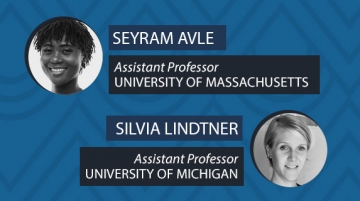
Africa is home to one of the fastest growing technology markets in the world. In fact, more African households own a mobile phone than have reliable electricity or even clean water. The combination of a young population, some of the fastest growing economies and steadily falling prices for both mobile handsets as well as internet access are all contributing to produce one of the most dynamic Internet Communications Technology (ICT) markets in the world.
Both the Chinese government and private companies play an outsized role in Africa’s ICT development. Vast new mobile phone and data networks are being built by firms like Huawei and ZTE, financed by China’s state-controlled banks while device manufacturers like Lenovo and Xiaomi flood the market with affordable handsets that allow tens of millions of new consumers to go online every year. Although the Chinese do not often get the credit they rightly deserve for building out so much of Africa’s technology infrastructure, human rights groups and other civil society organizations are increasingly concerned that along with the new devices, servers and routers, the Chinese are also importing the know-how for some African governments to implement far-reaching telecom surveillance initiatives.
This week on the podcast, Eric & Cobus explore the intersection between politics and technology in Africa and how China is changing the digital landscape across the continent, both for good and, potentially, in ways that could lead to increased censorship and state-control. Their special guest this week is Iginio Gagliardone, a leading scholar on African new media at Wits University in Johannesburg. Iginio is also an Associate Research Fellow in New Media and Human Rights at the University of Oxford in the United Kingdom and the author of the new book “The Politics of Technology in Africa.”
- Human Rights Watch: “They Know Everything We Do: Telecom and Internet Surveillance in Ethiopia” by
- The Global Times: “China’s Net Model Offers Wealth for Africa” by Joyce Chimbi
 Iginio Gagliardone teaches Media and Communication at the University of the Witwatersrand in South Africa, and is Associate Research Fellow in New Media and Human Rights at the University of Oxford, UK. He holds a PhD from the London School of Economics and has spent years living and working in Africa, including for UNESCO. His research focuses on the relationship between new media, political change, and human development, and on the emergence of distinctive models of the information society in the Global South. He has extensively published in communication, development studies, and African studies journals, and his work has been translated in Arabic, Chinese, French, and Italian.
Iginio Gagliardone teaches Media and Communication at the University of the Witwatersrand in South Africa, and is Associate Research Fellow in New Media and Human Rights at the University of Oxford, UK. He holds a PhD from the London School of Economics and has spent years living and working in Africa, including for UNESCO. His research focuses on the relationship between new media, political change, and human development, and on the emergence of distinctive models of the information society in the Global South. He has extensively published in communication, development studies, and African studies journals, and his work has been translated in Arabic, Chinese, French, and Italian.







